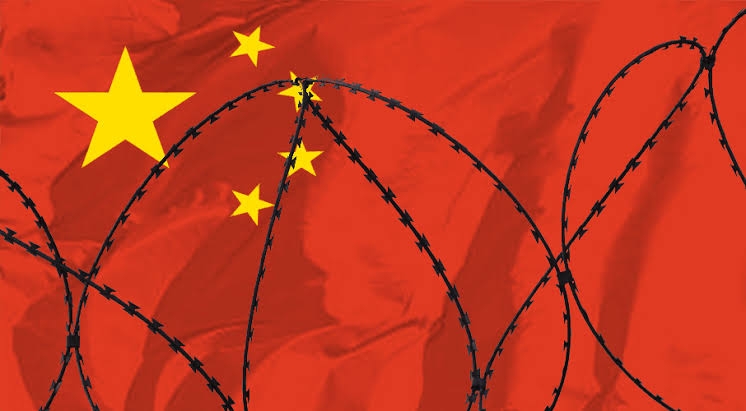Silenced and Oppressed: The State of Human Rights in Communist China
A serious problem is the detention of thousands of Uyghur Muslims and other ethnic groups in Xinjiang. According to some estimates, more than one million Uyghur Muslims have been imprisoned in what China has labelled “re-education centres.”

The People's Republic of China, which is governed by communists, has been under scrutiny for its human rights practices for a long time.
Various international organisation reports and human rights organisations have pointed out different violations, including mass detentions and surveillance as well as suppression of freedom of speech and religion.
A serious problem is the detention of thousands of Uyghur Muslims and other ethnic groups in Xinjiang. According to some estimates, more than one million Uyghur Muslims have been imprisoned in what China has labelled “re-education centres.”
These camps have a publicly stated objective of curbing extremism; however, accounts from people who have been interned there as well as documents that have been leaked point to very brutal conditions where people are made to work without wanting them, brainwashing, and physical or emotional violence.
One of the world’s most elaborate and intrusive surveillance systems has been created in China. For this purpose, the government uses sophisticated techniques, including facial recognition technology, artificial intelligence, and big data analytics.
In Xinjiang province, monitoring of Uyghurs is excessively done using cameras, taking biometric data on them, and it is mandatory for them to have specific mobile phone apps for tracking their movement and communication.
The internet and media are under strict control by the Chinese government. They do this by blocking many foreign websites with their ‘Great Firewall of China’ and censoring any information that may be regarded as politically sensitive or damaging the image of the Communist Party.
Needless to say, those who are involved in criticising authorities, such as journalists or bloggers, sometimes find themselves arrested or harassed, while others just disappear without trace.
A harsh response to protests reveals China's unwillingness to cope with disagreements. The severe crackdowns met the Hong Kong pro-democracy protests of 2019–2020.
Therefore, criminalising acts of secession, subversion, terrorism, and collusion with foreign forces effectively ended the “one country, two systems” principle by June 2020, when the National Security Law was imposed.
Consequently, people like journalists, activists, and opposition politicians have been detained or silenced using this statute.
Other religious groups, besides the Uyghur situation, also suffer persecution in China. Specifically, the Falun Gong spiritual movement has been victimised, and it has faced allegations of widespread arrests and torture and disproportionate organ harvesting.
Additionally, individual Christians as well as followers of other religions such as Buddhism find themselves limited in expressing their religious beliefs through various means, including destroying places of worship and jailing religious leaders.
According to evidence, Uyghurs and other minorities are forced to work in factories and fields in Xinjiang. This is not only the case in Xinjiang but also in other areas of China, where it is part of a more general system of exploitation affecting all sorts of industries.
Condemnation and sanctions were how the international community reacted. Those involved in human rights abuses by China have had sanctions imposed on them by the US, EU, and other nations.
However, they have denied these accusations, with China saying it is doing what is needed to protect itself from external threats while at the same time guaranteeing peaceful coexistence within its borders.
China has widespread and systematic human rights violations that affect millions of its people. The state of human rights in the country is grim as the government enforces policies such as mass detention, mass surveillance, and suppression of free speech, among others.
To hold China accountable and seek justice for victims of such abuses, it is essential that there be international pressure and persistent advocacy efforts.

Shomen Chandra
Intern, The Narrative


